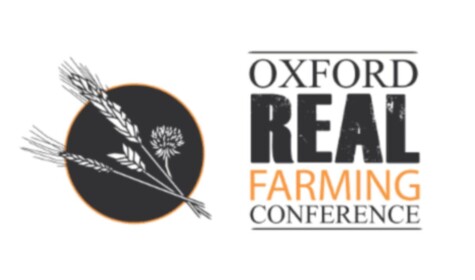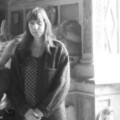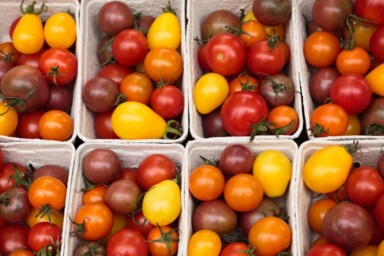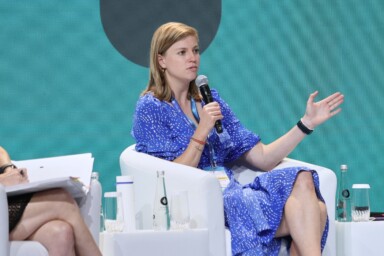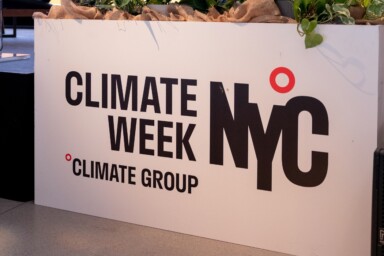“The scale of the challenge is rather terrifying.”
This heartfelt comment popped up in the online chat during the conversation between Patrick Holden of the Sustainable Food Trust and Zach Bush (MD) that rounded off day one of the ORFC 2023.
I was attending the Conference online. Having access to the rich array of sessions at ORFC 2023 from the comfort of my own home was a welcome solution to attending a conference which I really wanted to go to, but just couldn’t get to in person. So, the online experience was my only option.
The title of the session was, “Why all health issues come back to how we treat the soil.” It had Zach beaming in from America to spread terror among those of us that didn’t know that “85% of the air and rain in the US is contaminated with Roundup” or that glyphosate had “devastated our public health”.
Being a “danger to public health”, (along with “quackery”), is something that, somewhat ironically, Dr Zach Bush has been accused of by his detractors. There is big money involved in being on one side or the other of the chemical debate and I’ll leave it to others to do independent research on the relative dangers of Zach Bush and Monsanto/Bayer.
For my part, I’m with Patrick when he tempers the terror with his assertion that, “People need to be worried but also inspired to make the change.”
The challenge of turning the trajectory of damage inflicted on our planet, climate and health by the industrialisation of food production underpinned much of this year’s ORFC. With sessions covering issues such as transgenic crops, carbon trading, colonialism and corporate control, it would be easy to feel despondent.
But farmers are not naturally despondent people – we wouldn’t last long in farming if we were. And as the ever-reassuring Satish Kumar pointed out in the opening plenary, “to be an activist you also have to be an optimist”.
While protest marches and banner waving might be many people’s image of an “activist”, it is easy to overlook the fact that most of us attending the ORFC are activists every day of our lives. We are, through our day-to-day activities, campaigning for the right of all people to access real food and for farmers to produce it in ways that are not detrimental to the health of the planet.
There is much to be inspired by and I think one of the strengths of the conference is the sharing of inspiring stories, in particular by those who are often isolated and marginalised. In an age when ‘divide and conquer’ is the ever present rule of thumb of colonising powers and corporate interest, the need for solidarity among the small and dispossessed has never been stronger. As Emile Frison pointed out in Adjusting to the new normal, we need to be addressing “all the issues that really matter to people. We have no time to delay the transformation. We do not need any more evidence.”
The sense of urgency at this year’s conference has never felt stronger. Constant media coverage of biodiversity loss, climate breakdown and human tragedy can feel overwhelming. The knowledge that so many inspiring projects and acts of resistance are happening all over the globe helps to make our individual struggles more manageable.
For me, one of the most moving testimonies to acts of resistance came from Doha Asous in the session, Farming under fire: Cultivating land and life in occupied Palestine. Doha has worked on her family farm since the age of six, her father having been killed, leaving her mother with four young children to care for alone. Illegal Israeli settlers surround her land, destroyed her trees, including some planted by her grandfather and others that are 200 years old, and released pigs that root out her crops. “What harm have I done them?,” she pleads, “They know we are the rightful owners of the land.” She is also forced to apply for a permit to access land that her ancestors have farmed for generations. Sometimes a permit is given, sometimes not. And yet, she continues planting and harvesting olives, citrus, almond, chickpeas and all manner of native vegetables. She saves her own seed, believing it to be more resistant to disease and climate change, makes flour from her own wheat and is a member of Slow Food Palestine. Doha’s cooking is famous among the international volunteers who arrive annually to help with the harvest and form a Protective Presence against settler attacks. Of them, she says, “International volunteers are friends. They are also threatened and in danger. They come from their country and help us and stand in solidarity with us. They carry humanity in their hearts and see with their own eyes what we are victims of.”
While we all need the psychological (and sometimes literal) boost of international solidarity, we also need good practical ideas and discussions at local and national level. Some interesting, livestreamed sessions on such things as Future nut production in the UK and Living bread: The way of the peasant baker, provided excellent direct advice and information while other sessions dealt with the complexities of policy and subsidies.
If we are to become the ‘change that is needed’, it is essential that we maintain credibility within the wider agricultural sector. Agroecology needs to become mainstream. The loss of small farms needs to be reversed. The ironically named “Nature Based Solutions” needs to be shown for the dangerous land grabbing distraction that it is, as illustrated by the speakers in the session entitled, The new business of carbon farming and other ‘nature based solutions’.
The ORFC is sometimes considered to be “The Hippy Conference”, as someone remarked to me recently. While I think it is important to move farming away from land being treated purely as a commodity, we need to be mindful of keeping a focused agenda. I very much enjoyed the beautiful little film, The Alchemy of Baking, with French farmer and baker, Nicholas Supiot’s magical approach to his craft. I was less impressed, however, when the microphone at a session in the main hall was given to a crying woman, who from the livestream looked like she had a basket of flowers on her head and who asked Vandana Shiva in a cracking voice how “we can make our brains more mystical”!! If we want to have mainstream farmers that might be tentatively trying out the ORFC running up the road to the other conference, that is the way to do it!
My last session at the online ORFC 2023 was Feeding Britain from the ground up. A lively discussion by some eloquent and entertaining speakers was accompanied, for those of us watching livestream, by a furious debate about meat versus veganism in the online chat.
The wonderful Darina Allen seemed to always have to ask to have her say so I’m giving her the final word here: “Farming, cooking and foraging should be embedded in the education system. You can’t eat a flipping maths book”!
